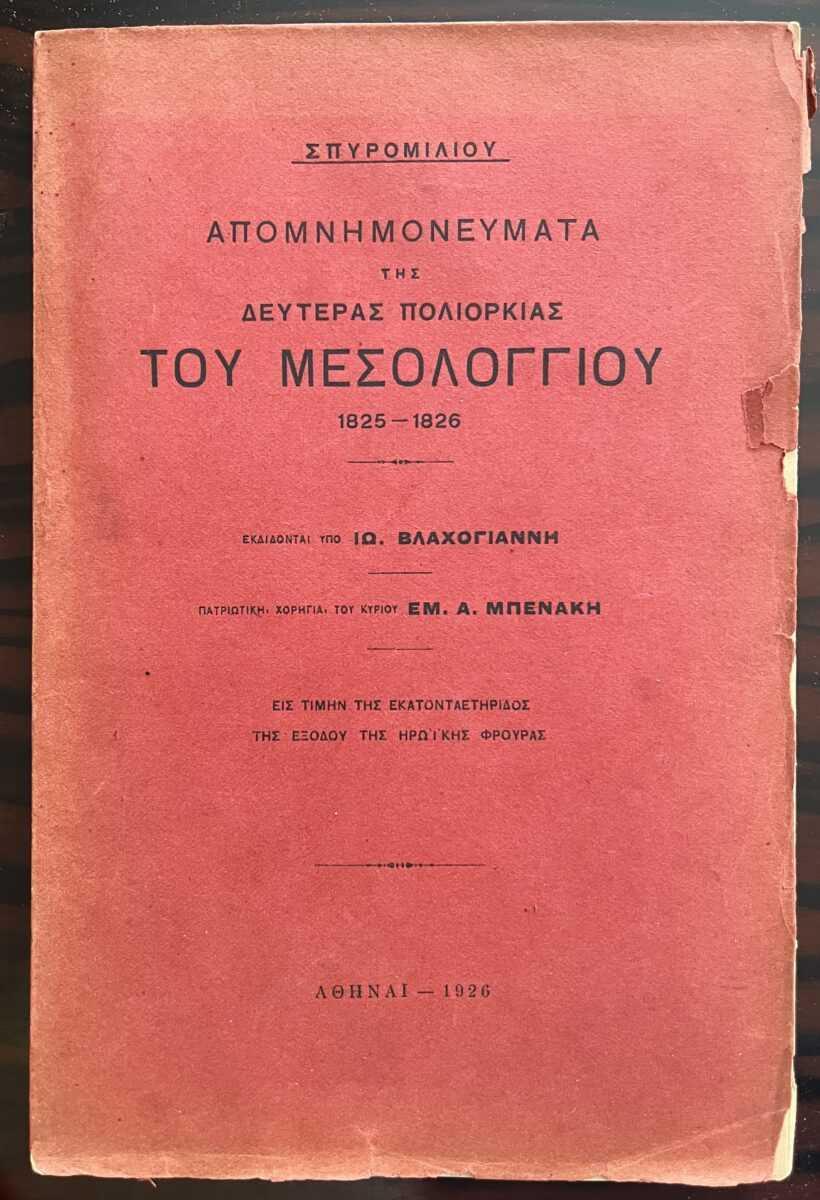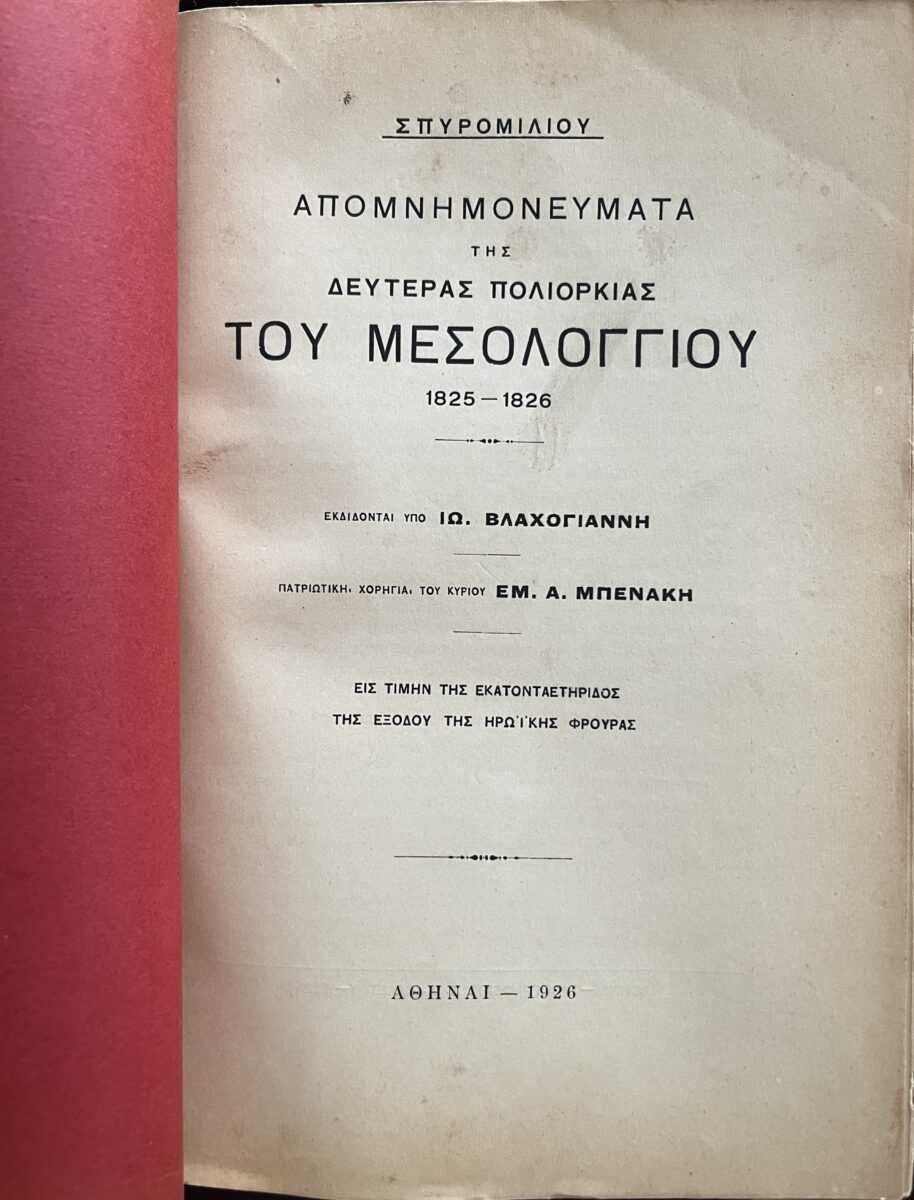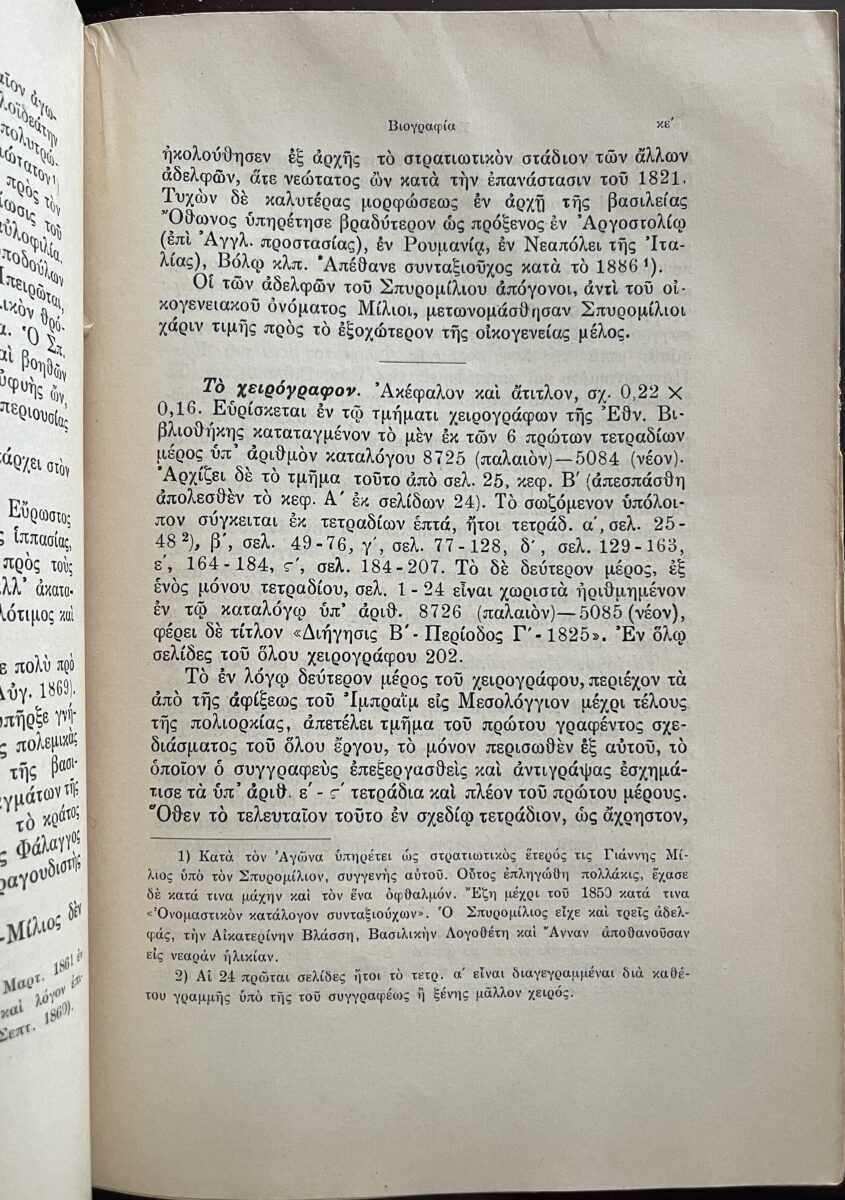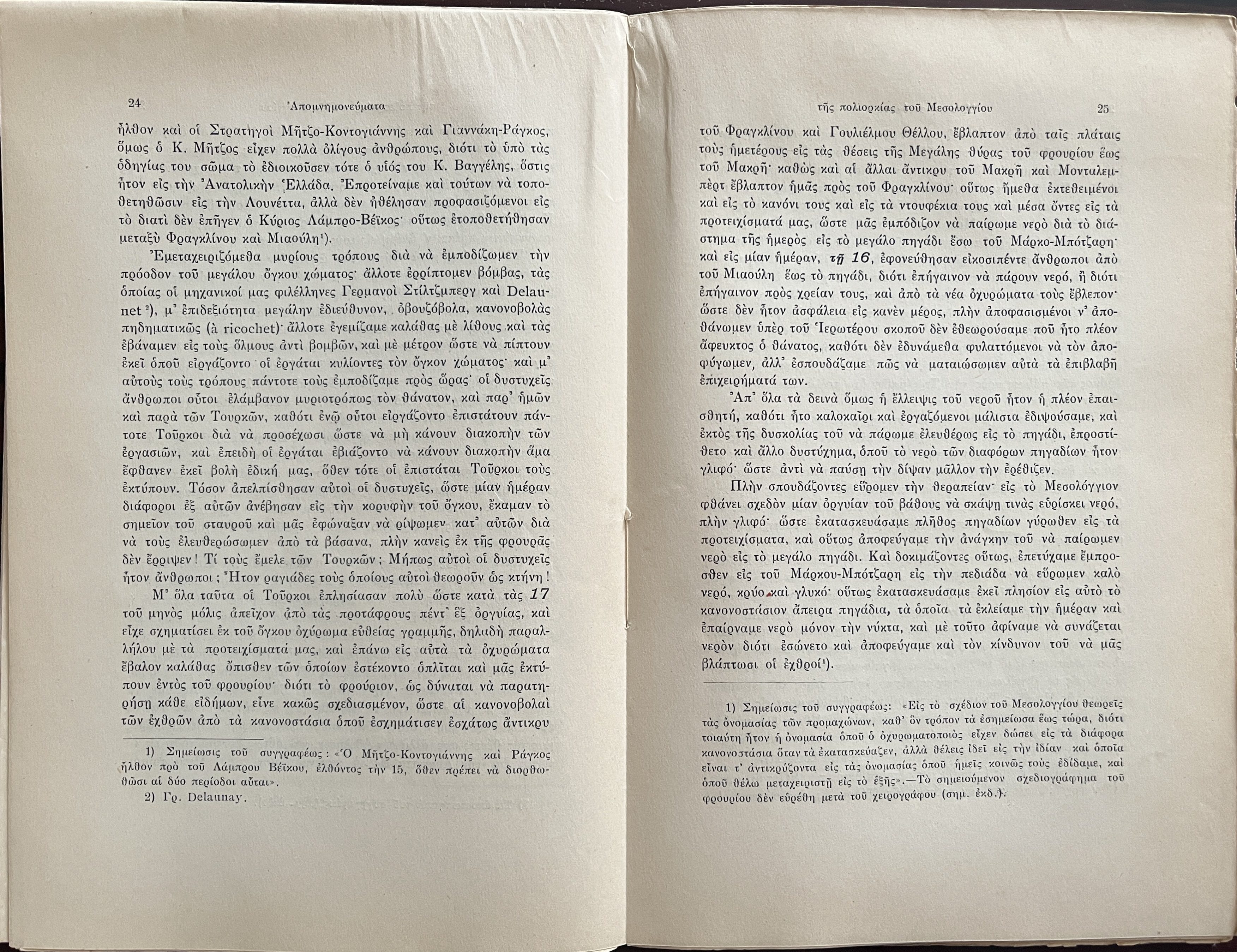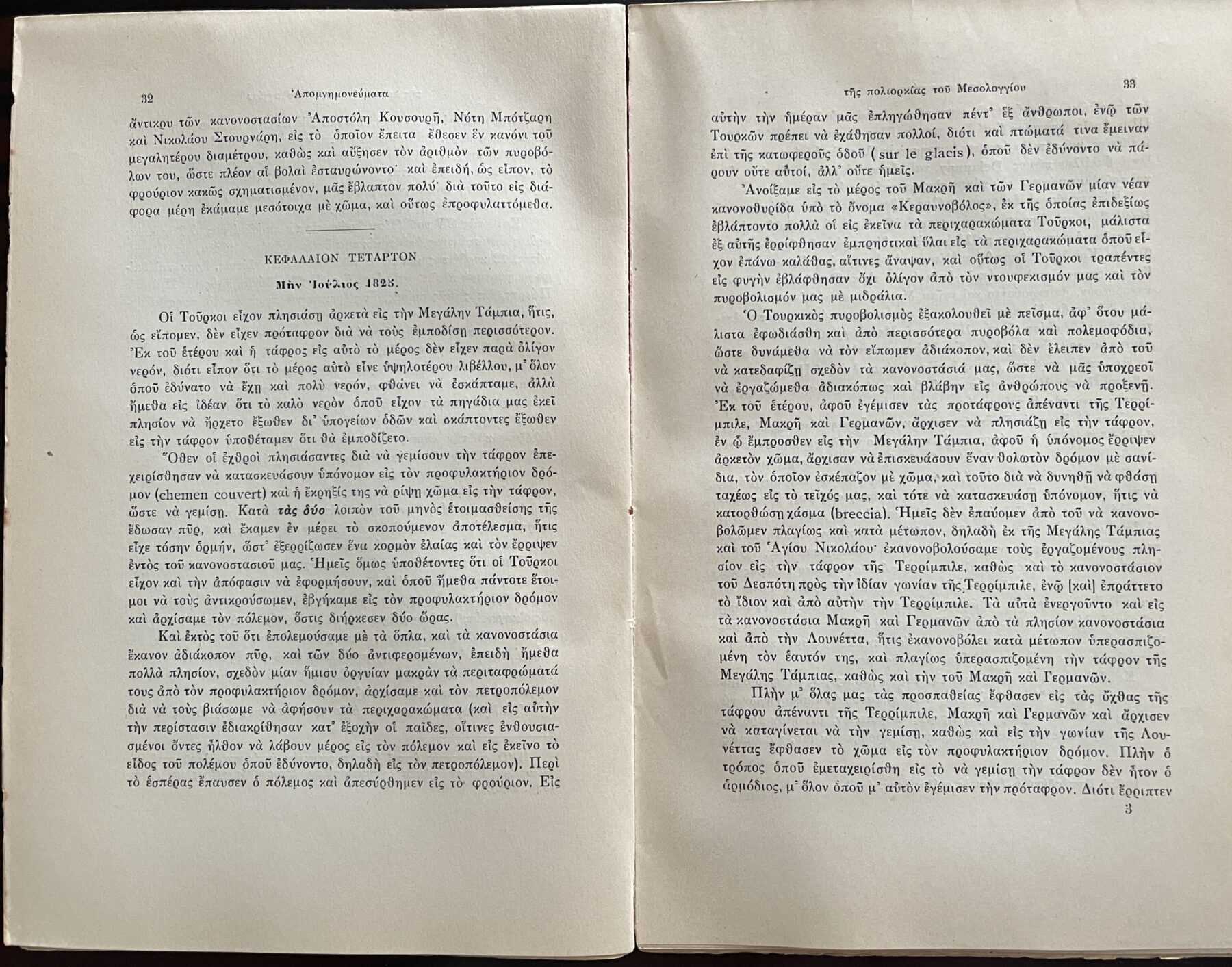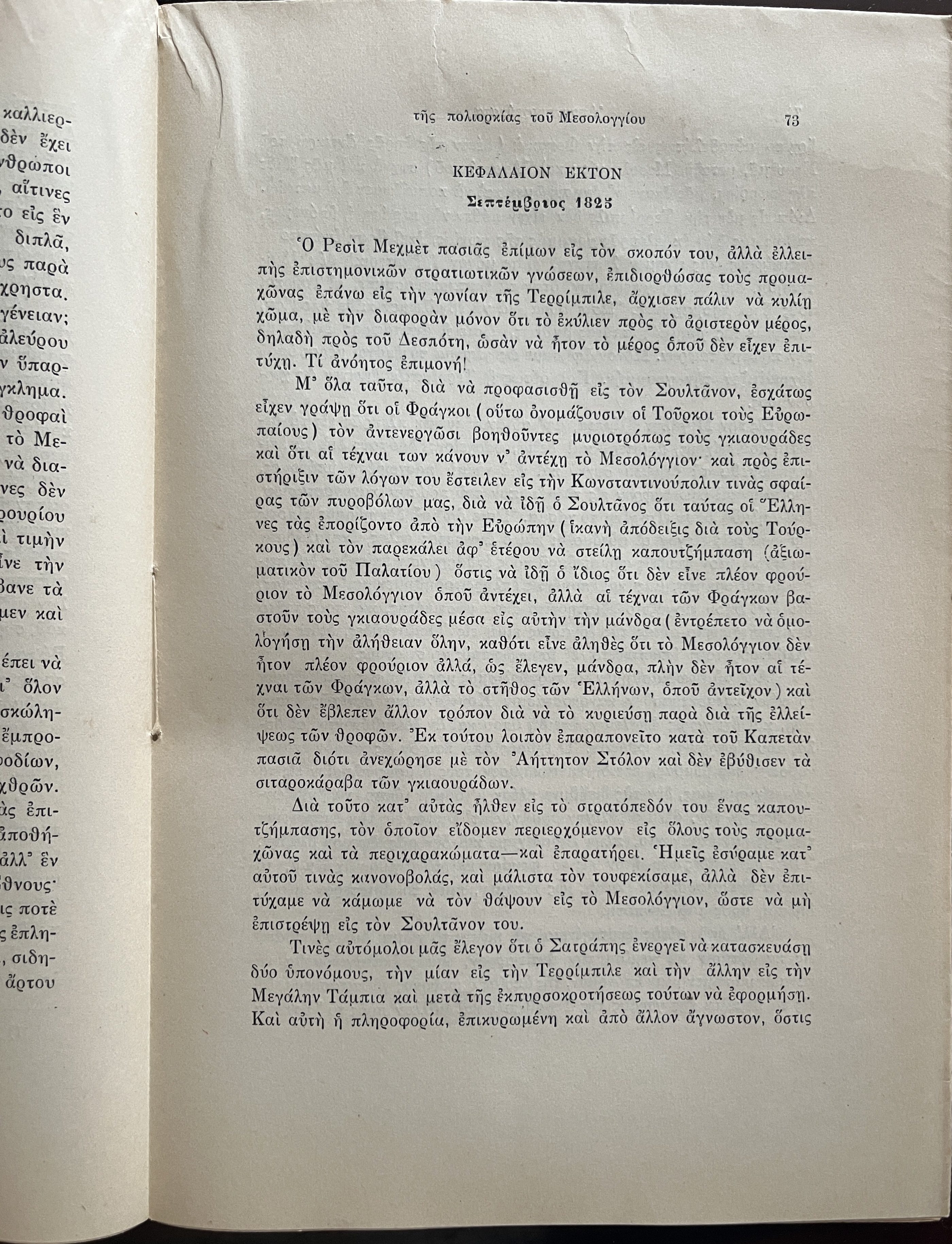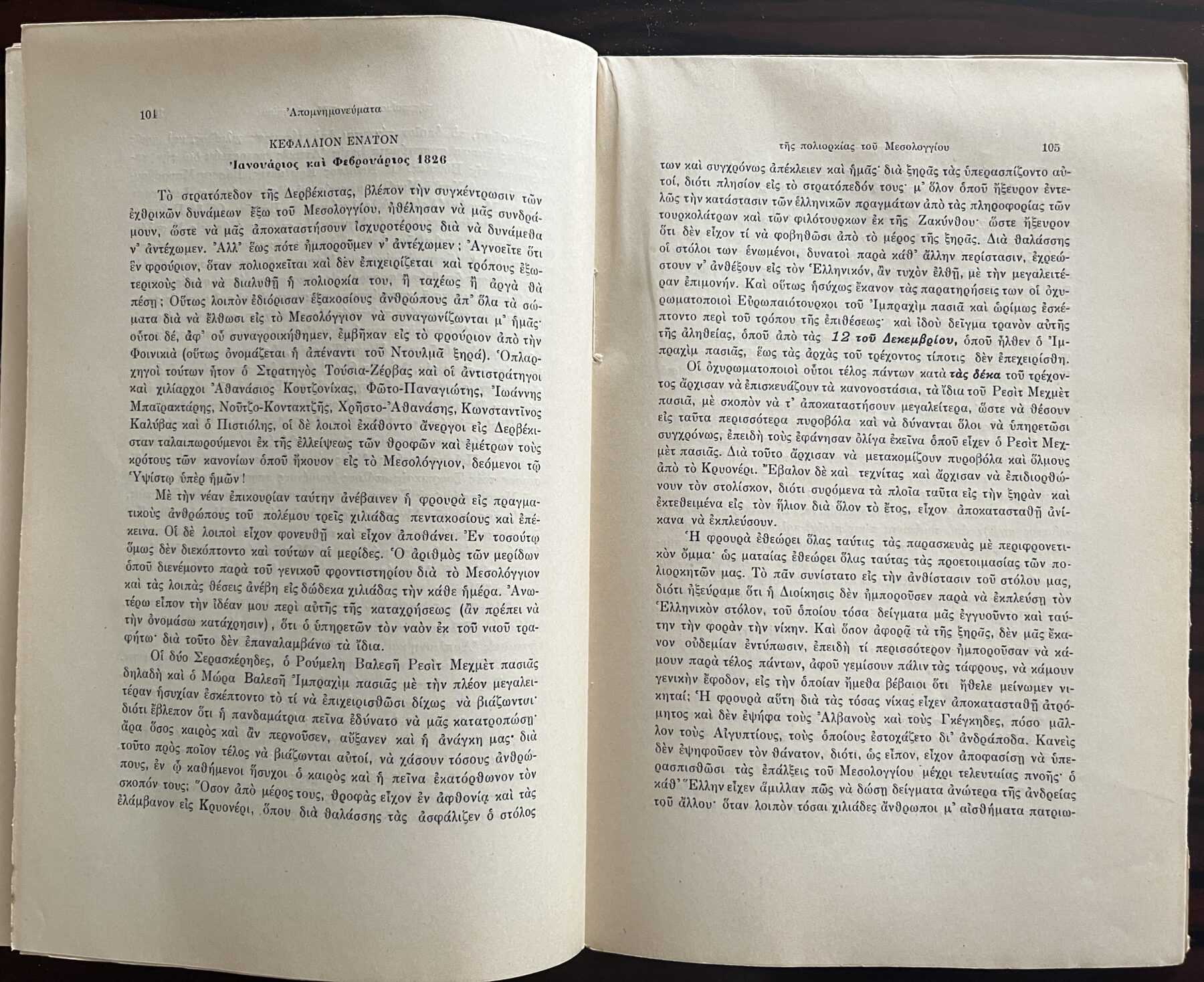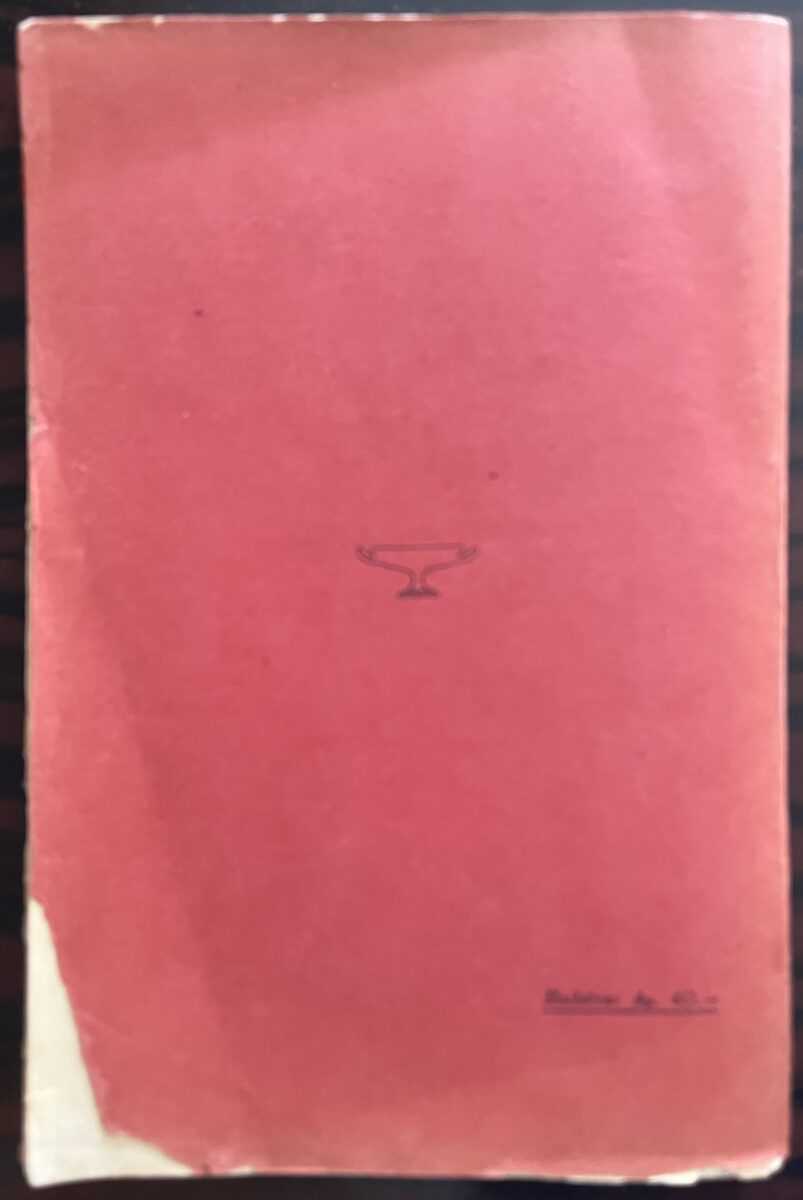1926, Spiromilios, Memoirs, Siege of Missolonghi, Greek War of Independence 1821
100.00€
Description
Σπυρομήλιου
Απομνημονεύματα
της
Δευτέρας Πολιορκίας του Μεσολογγίου
1825 – 1826
Εκδίδονται υπό Ιω. Βλαχογιάννη
Πατριωτική χορηγία του κυρίου Εμ. Α. Μπενάκη
Εις τιμήν της Εκατονταετηρίδας
της Εξόδου της Ηρωικής Φρουράς
Spiromilios
Memoirs of the Second Siege of Missolonghi
In honor of the Centennial
of the Exodus of the Heroic Guard
Published by I. Vlachogiannis in Athens 1926
Original Paper Binding
16 cm x 24 cm
Pages
First Edition
The Third Siege of Missolonghi (Greek: Τρίτη Πολιορκία του Μεσολογγίου, often erroneously referred to as the second siege) was fought in the Greek War of Independence, between the Ottoman Empire and the Greek rebels, from 15 April 1825 to 10 April 1826. The Ottomans had already tried and failed to capture the city in 1822 and 1823, but returned in 1825 with a stronger force of infantry and a stronger navy supporting the infantry. The Greeks held out for almost a year before they ran out of food and attempted a mass breakout, which however resulted in a disaster, with the larger part of the Greeks slain. This defeat was a key factor leading to intervention by the Great Powers who, hearing about the atrocities, felt sympathetic to the Greek cause. Their support would prove decisive in helping the Greeks win the war and gain independence.
Spyridon “Spyros” Milios (Greek: Σπυρίδων “Σπύρος” Μήλιος; 1800–1880), more commonly known as Spyromilios (Greek: Σπυρομήλιος), was a Greek revolutionary, general and politician. In his memoirs, he gives detailed account of his life. They are an important contemporary document, especially regarding the Siege of Missolonghi.
About the book: This work constitutes a valuable primary source for the Siege of Messolonghi, recording the conditions prevailing within the city, the bravery of its defenders, the hardships, the famine and the clashes with the Ottoman and Egyptian forces. Spyromilios, being a soldier and a direct witness to the events, describes in detail the events that led to the great Exodus on the night of 10 April 1826. The 1926 edition by Vlachogiannis is part of his effort to rescue and publish unpublished memoirs of fighters of the Revolution, thus contributing to the formation of the historical memory of 1821.
Additional information
| Languages | Greek |
|---|

